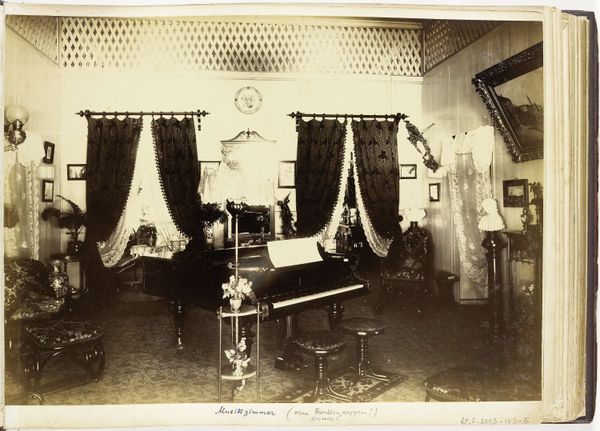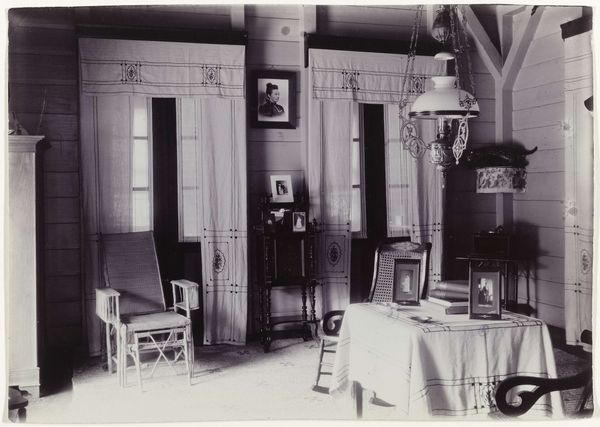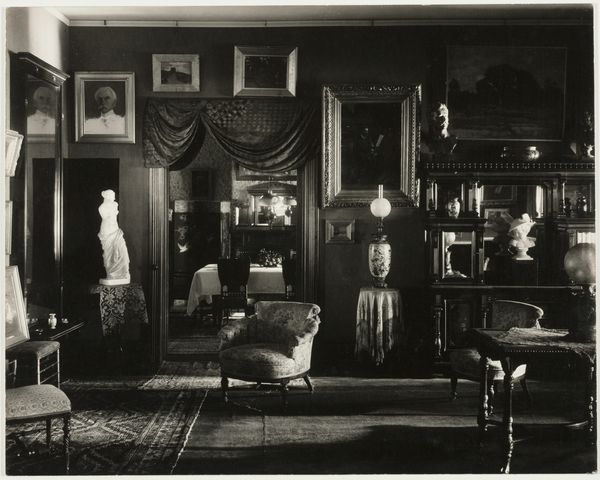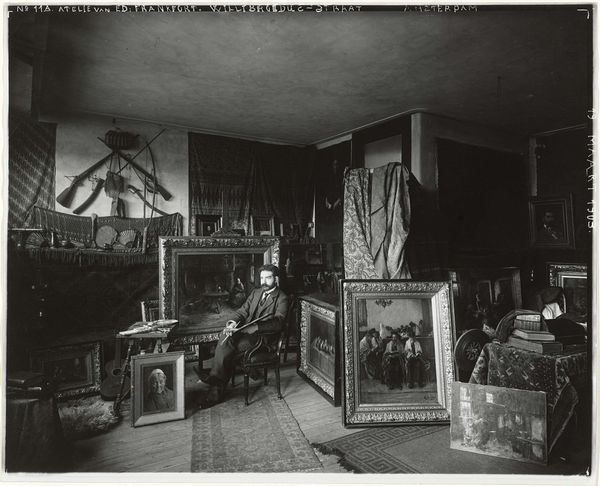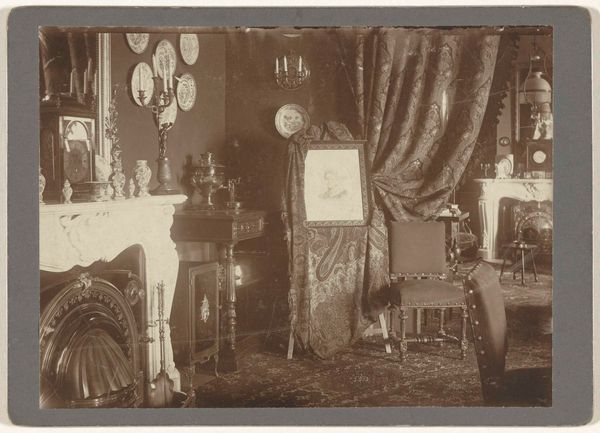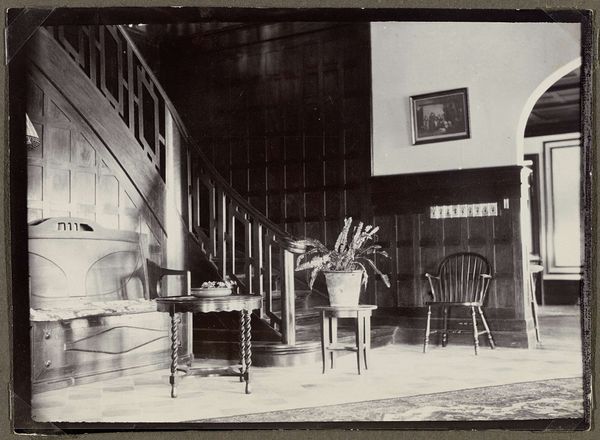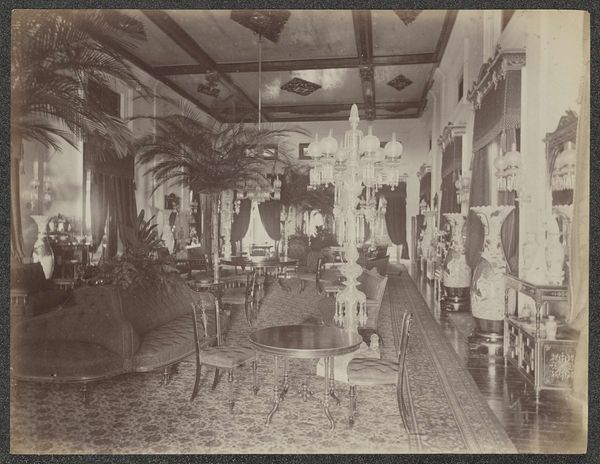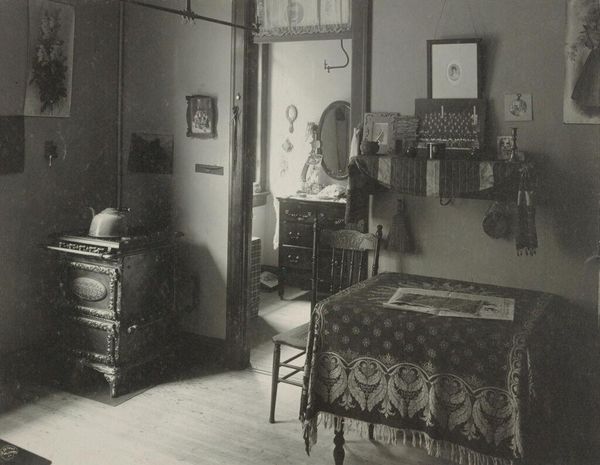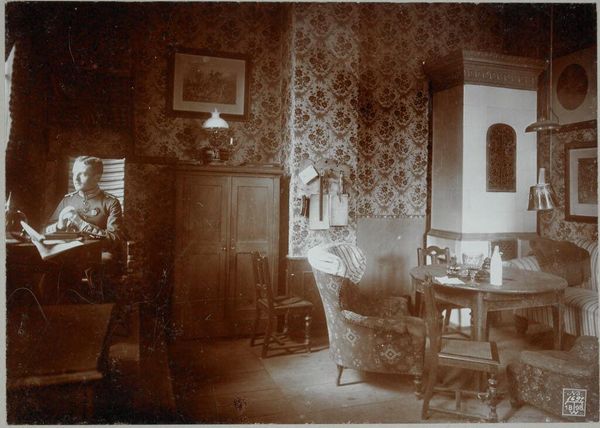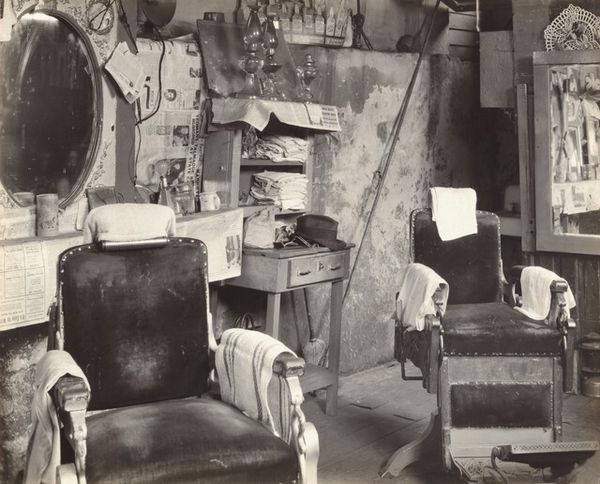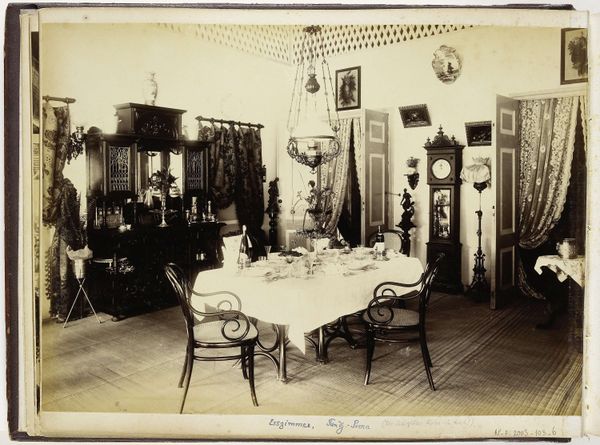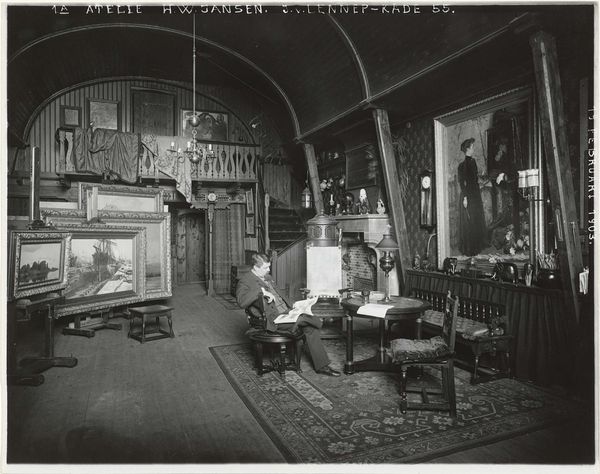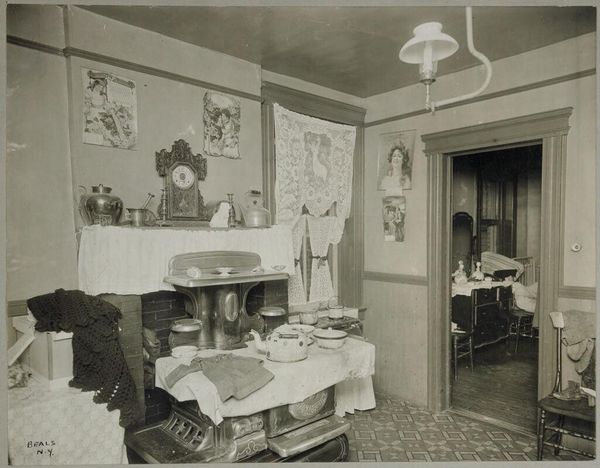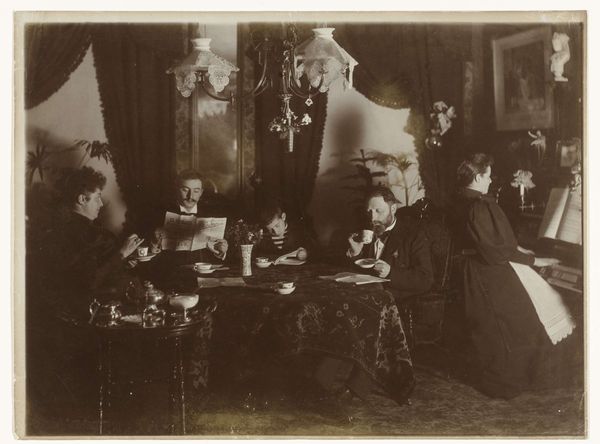
photography, gelatin-silver-print
#
portrait
#
black and white photography
#
black and white format
#
photography
#
historical photography
#
old-timey
#
gelatin-silver-print
#
monochrome photography
#
genre-painting
#
monochrome
Dimensions: image/sheet: 30 × 39.75 cm (11 13/16 × 15 5/8 in.)
Copyright: National Gallery of Art: CC0 1.0
Curator: "Janet Gaynor and George O'Brien in Sunrise," a gelatin silver print, created circa 1927. The photograph captures actors behind the scenes. Editor: There's a captivating tension between staged artificiality and authentic presence, wouldn't you say? Curator: Precisely. Let's examine the production setup—the lighting apparatus, the backdrop supports—all unveiled to the viewer, it’s raw and utilitarian. Editor: Exposing the infrastructure behind these idealized images of movie stars destabilizes any illusion of effortless celebrity. The photographer's presence also plays a significant role. They weren’t invisible in this era. Curator: Note the massive camera. Photography in the early 20th century wasn't instantaneous, think of the labor involved—handling bulky equipment, mixing chemicals, printing the images. Each print represents hours of physical engagement. Editor: And what about the representation? This work really underscores the idea that images are constructed. Think of Janet Gaynor and George O’Brien within the silent film era. They represent shifting gender roles—O'Brien in his sturdy suit, while Gaynor seems ethereal. These performers had power. The image suggests the larger machinery behind building the stardom itself. Curator: How interesting that the picture exposes its means! This is what fascinates me most—the tools themselves become central to the art. It underscores that creating and marketing actors required just as much artistry as performance. Editor: Right, stardom is created labor, it does not just magically exist. This candid framing lets the viewer into the business of image making—all while hinting at their evolving relationship. We can read it today as the very genesis of modern celebrity and its costs. Curator: Absolutely. It shows us the materials and working conditions that have shaped modern popular culture. Editor: A compelling snapshot of performance, production, and the slow-burn construction of what we consider 'real' within popular media.
Comments
No comments
Be the first to comment and join the conversation on the ultimate creative platform.
